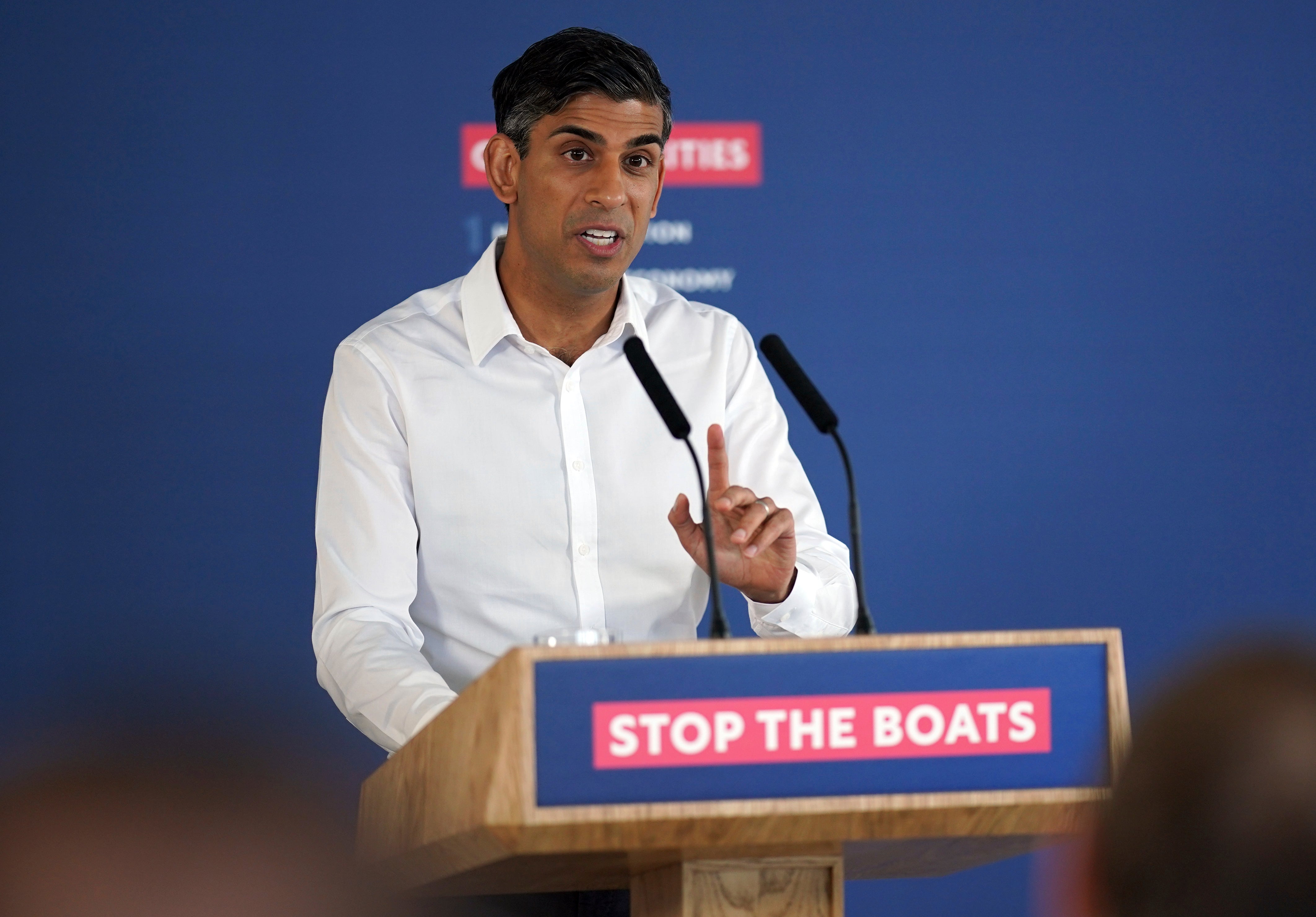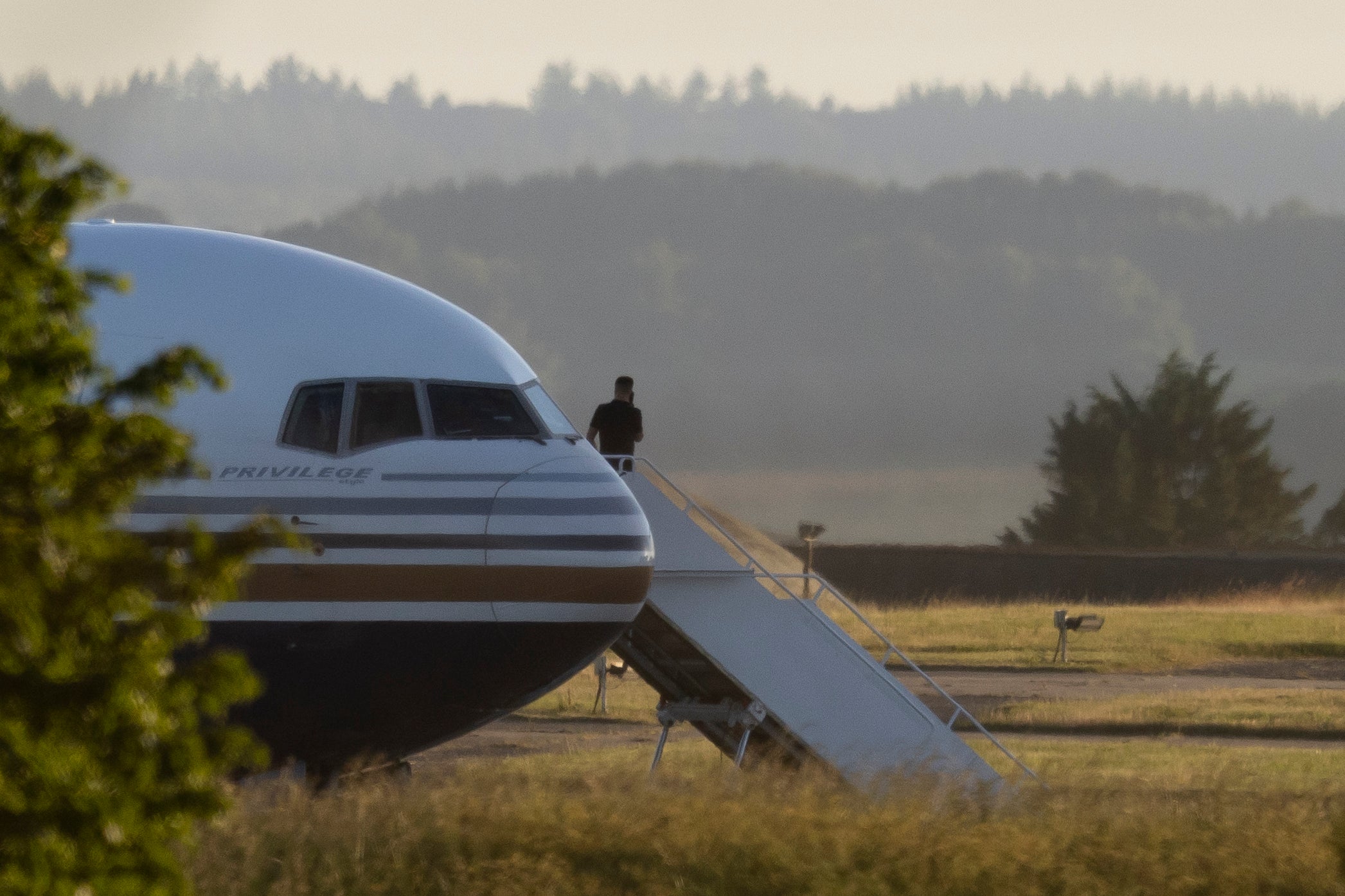How the government that promised to ‘stop the boats’ has lost control of its immigration policy
The Court of Appeal ruling is a devastating blow to the government’s policy to deter small boat crossings, but the legal battles don’t end here, writes Lizzie Dearden

The government has lost the latest stage of the long-running legal battle over the £140m Rwanda deal, in a devastating blow to Rishi Sunak’s vow to “stop the boats”.
When the agreement was signed in April 2022, ministers claimed it would “deter” crossings, but the record numbers that followed last summer forced them to back-pedal and claim the effect would not be seen until flights to Rwanda started.
They have not, and now will not until a final showdown at the Supreme Court gives an absolute ruling on whether Rwanda is not a safe country to receive asylum seekers forcibly deported from the UK.
In the meantime, judges have unequivocally stated that any removals to Rwanda would be unlawful.
But a defiant Suella Braverman vowed to parliament “it’s not over yet”, hours after the Court of Appeal delivered its judgment. She insisted:“We’re seeking permission to appeal it and we will await the outcome.
“It is premature to assume this is the end of the policy. We are committed to delivering it.”
But victory is uncertain for the government and the process will be a lengthy one, with the home secretary first having to apply for permission to appeal.
That is expected to be granted, but 31 July is the end of the legal year and the Supreme Court will not return until October unless a “truly exceptional” case requires it to sit during its summer recess. Government sources themselves are briefing that the case may not end until the autumn.
The home secretary admitted to MPs that she had no control over the timing, saying only: “We hope that the process will be swift.”
Asked what her plan was if the Rwanda deal cannot go ahead, the home secretary did not outline any other strategy.
The agreement is the linchpin of the government’s controversial Illegal Migration Bill, which is in its final stage of parliamentary scrutiny and has already triggered a massive and costly Home Office restructure.
But while new powers to detain and deport all small boat migrants are expected to be passed within weeks, they depend on the Rwanda deal working, and no other agreements to receive asylum seekers are in place.
The government has only attempted one flight to Rwanda, in June 2022, but it was abandoned after last-minute injunctions from the European Court of Human Rights.
Home Office documents seen by The Independent showed that detainees selected for the plane self-harmed, threatened suicide and were put into “pain inducing” restraint after begging not to be deported from the UK.
One man was found cutting his wrists with shards of a drinks can, while another smashed his head against a plane seat while screaming “no, no” in desperate scenes on 14 June last year.
Forms filled out by custody staff after “use of force incidents” showed how the detainees started crying, screaming, shouting and frantically calling lawyers and loved ones after being told they would be sent to Rwanda.
One asylum seeker told staff that he would “kill himself” if he was forced to get on the flight, but was later put in a waist restraint belt and physically attached to a plane seat.

Several other people were restrained and official reports described widespread distress and desperation.
No further attempted flights have taken place and all the asylum seekers put on the June 2020 charter were later released from immigration detention, following threats of legal action for unlawful imprisonment.
The government has spent at least £1.3m already on legal costs in relation to the policy, and the figure is sure to be rising dramatically.
When the agreement was signed by Priti Patel in April last year, it also pledged to give Rwanda £120m for its “economic development and growth”.
Then in October last year, the Home Office revealed a further payment of £20m for “initial set-up costs” relating to facilities for processing and housing asylum seekers.

An impact assessment for the government’s Illegal Migration Bill, which aims to see all small boat migrants detained and deported without their asylum or trafficking claims being considered, estimated it would cost £169,000 to deport each person.
The Home Office said the figure was not the actual payment agreed with Rwanda, because it was “commercially sensitive”, and admitted it did not know whether the overall policy would be value for public money.
“There is a risk that the practical complexities of the bill mean the bill will not be fully delivered,” an official impact assessment said. “Any deterrence impact relies on the policy working as intended.”
It is certainly not, and even if the Rwanda scheme is eventually ruled lawful, the Court of Appeal ruling said “the physical capacity for housing asylum seekers in Rwanda was limited to 100”.
The Lord Chief Justice said it was “political hyperbole” to talk of “Rwanda, within a few years, being a destination for thousands of asylum seekers who arrived irregularly in the United Kingdom.”
And yet, that is what the government continues to claim will happen. It has outlined no plan B, while Channel crossings continue at near-record levels and the asylum backlog and associated costs continue to mount.
The boats have not been stopped, and Rishi Sunak’s government is looking ever less in control.
Subscribe to Independent Premium to bookmark this article
Want to bookmark your favourite articles and stories to read or reference later? Start your Independent Premium subscription today.






Join our commenting forum
Join thought-provoking conversations, follow other Independent readers and see their replies
Comments